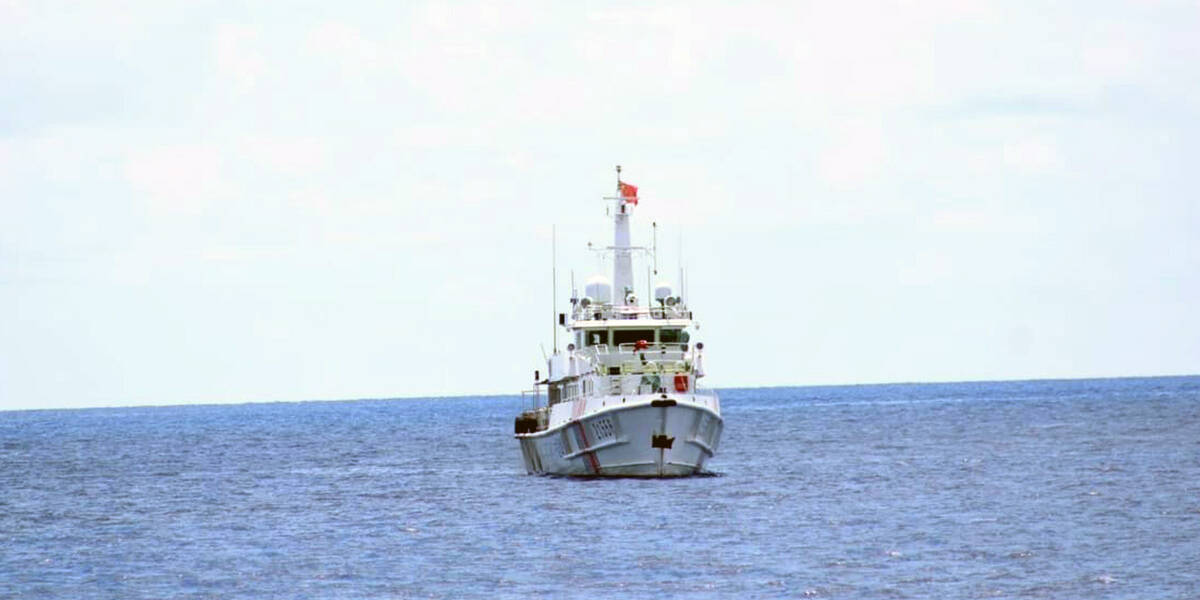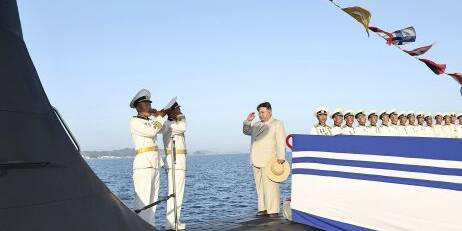Nian Peng, for East Asia Forum
On 20 November 2023, Philippine President Ferdinand Marcos Jr claimed that the Philippines had
approached neighbours such as Vietnam and Malaysia to craft a separate ‘code of conduct’ (COC) in
the South China Sea (SCS).
Speaking in Honolulu, Marcos said, ‘We are now in the midst of negotiating our own code of conduct, for example, with Vietnam because we are still waiting for the code of conduct between China and ASEAN and the progress has been rather slow unfortunately’. He also said that Vietnam and Malaysia were among the Southeast Asian nations with which he was trying to negotiate a code of conduct to maintain peace in the SCS.
This is not the first time that Marcos has called for the COC negotiations with the Philippines’ neighbours to be pushed forward. During the 40th and 41st ASEAN summits and related summits in Phnom Penh, Cambodia on 11 November 2022, he said there was an ‘urgent need’ for the COC but did not propose creating a separate COC.
Manila is endeavouring to form alignment with its neighbours within the COC consultation process, leveraging their collective influence to oppose clauses that are advantageous to China. It also attempted to assert pressure on China to make concessions through threatening to lead a separate COC. The Philippines also aims to involve Vietnam and Malaysia in its fight against China in the SCS to strengthen its bargaining position. Through collaboration with other claimants, the Philippines also intends to stop China from taking aggressive actions in the SCS.
But Vietnam and Malaysia are unlikely to follow Marcos’ suggestions of crafting a separate COC. Despite Vietnam’s collaboration with the Philippines on the South China Sea Arbitration, it has not yet formally filed its case with the Hague Tribunal. Vietnam has not endorsed Marcos’ suggestion, though Hanoi differs in opinion from China in the COC consultation.
Unlike the Philippines, Vietnam has no intention of provoking China in the SCS. Instead, it prefers to adopt a diplomatic way to carefully managing its territorial disputes with China without undermining bilateral relations. In June 2023, the Vietnamese government cooled its maritime standoff with Chinese coast guard vessels in Wan’an Bank. Vietnam is unlikely to join the Philippines’ anti-China camp.
Malaysia has historically maintained a nonconfrontational approach to SCS disputes. Despite tensions in the SCS, the Malaysian government has consistently stressed a diplomatic solution. Since President Anwar Ibrahim assumed office in November 2022, Malaysia has maintained an even closer relationship with China. The warmth in China–Malaysia relations is evident in the frequency of high-level contacts, such as President Anwar’s meeting with Chinese President Xi Jinping in Beijing in March 2023 and the deepened cooperation on Belt and Road Initiative projects.
According to a survey conducted by the Merdeka Center on 22 November 2023, the Malaysian public is more concerned about the economic performance of the new government led by Anwar Ibrahim than its geopolitical manoeuvring. The top priority of the Anwar administration is economic growth rather than destabilising the SCS.
Both Vietnam and Malaysia were among the six participating countries in China-led maritime exercise that kicked off on 13 November 2023 in Zhanjiang, the headquarters of the Chinese navy’s South Sea Fleet. The objective of the exercise, code-named Peace and Friendship-2023, was to enhance mutual trust and cooperation to jointly safeguard regional peace and stability. It is clear that the majority of Southeast Asian nations and China are committed to maintaining peace and stability in the SCS.
Shortly after Marcos’ claims of crafting a new ‘code of conduct’, Chinese Foreign Ministry spokesperson Mao Ning warned that ‘any departure from the Declaration on the Conduct of Parties in the South China Sea framework and its spirit will be null and void’. This not only signalled China’s opposition to Marcos’ suggestions but also demonstrated Beijing’s resolve to prevent the Philippines from disturbing the COC consultation process.
Marcos’ assertions regarding the development of a new code of conduct will not only fail to garner support from neighbouring countries but will also erode any tenuous trust that may have been forged between the Philippines and China during the brief discussions conducted between Marcos and Xi at the APEC Summit in November 2023.
The original article can be found here at East Asia Forum.
Nian Peng is the Director of the Hong Kong Research Center for Asian Studies (RCAS), Hong Kong.
Feature image: via Wikimedia Commons
Related Analyses
September 15, 2024
West Philippine Sea: Several factors force BRP Teresa Magbanua to return – PCG
0 Comments1 Minute


